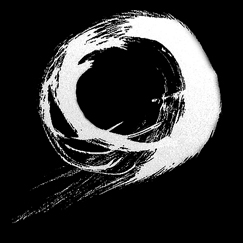
BuddhaWeg-Sangha
Mitglied der Association Bouddhiste Zen d'Europe
Mitglied der Deutschen Buddhistischen Union
|
A
House of One People
|
|
Yesterday I spent the afternoon at the home of Sheila Hixon. It was the second anniversary of the passing of her husband, Lex. Lex Hixon was known by many names during his lifetime. To the Sufis who gathered for zikr every Thursday evening at the Masjid el-Farrah in downtown Manhattan, he was Sheik Nur, given this name by Sheik Muzaffer of the Jerrahi order. When he studied the Vedanta tradition he adopted the name, Ramakrishna Das. I named him Jikai when I empowered him as a Zen teacher in my own Soto Zen Buddhist lineage. In the Eastern Orthodox Church he answered to his birth name, Alexander. He also studied Tibetan Buddhism, and, more than 30 years ago, long before it became fashionable, he spent extended months with the Lakota Sioux. Lex Hixon was a multi-faith world all unto himself: a rare being who not only felt at home in various religious traditions, but celebrated each with boldness and passion. Many of the rooms in Lex's home are shrines in the different traditions which he studied. His wife, Sheila, took us from one shrine room to another, making sure to close the doors between them. "Lex always did that," she explained. "He believed in maintaining the beauty and completion of each tradition. He didn't believe in combining them or letting them run together, each had to have a wholeness. Lex loved the specificity of each religion." In other words, Lex loved the differences. He and I talked often about the world of multi-faith encounters. My own vision of such a world is called the House of One People. The House of One People will be not only a space where people of different religions will dialogue or hold joint celebrations, but also where all of us, while upholding our separate paths, will be one people. It will be a place where unity is simply the manifestation of difference. One obvious obstacle to a House of One People is that not all people want to come together in a spirit of oneness, certainly not those who spill blood in the name of Christ or Allah or Jehovah. Celebrating diversity, however, is also not simple. In our secular society it's all too easy to minimize the differences between the religions. Many claim that all religions are nothing other than different manifestations of some ultimate reality. Christ, Buddha, Muhammad, and Confucius are all put into one neat category, as though they're interchangeable. People do this for a number of reasons. We like to think that underneath it all, we really are the same. That if only we could only cut through those topmost superficial layers, we'd realize our sameness and get rid of all misunderstanding. It's easier in this way to have dialogue and joint celebrations. We can gloss over some minor differences and meet in the great space of professed unity, which transcends all differences. But in human nature, and in religious traditions, this is not so. We are one. And we're also different. There are powerful and profound differences between our religions that can't be (and shouldn't be) eliminated through wishful thinking. Hans Kung, who has written extensively on the importance of a global ethic, points out that multi-faith dialogue is for those who are prepared to hold fast to the truth of their own point of view. "Capacity for dialogue and for steadfastness are not opposites," he warns. You can't try to eliminate differences for the sake of unity. That's not easy for us to hear. If we reinforce differences, how will we realize our unity? For the House of One People isn't just about dialogue. We envision a House where we will actually be One People, at the very time that we follow our separate religious paths. We will explore the spirituality that is common to all religions, and practices that help us see our oneness and diversity as two sides of the same coin. My hope and wish are that one day we will have a House of One People in every city, in every country in the world. No House will look and feel the same as another, and that won't matter. For in honoring our diversity, we'll discover our oneness. By accepting our differences, we'll come together as one people. |